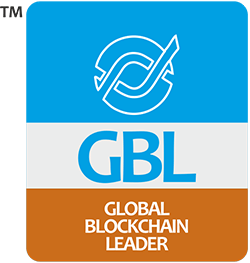Jul 23, 2019

One in every six people - Or globally 1.1 billion people have no legal documentation. This facelessness is the onset of depravity: no access to basic services, no housing, no education, greater risk of human trafficking and displacement. These faceless people exist and human civilization owes them the least - a human identity.
Thankfully now, blockchain is addressing this global pandemic. Along with a secure, portable digital identity, the blockchain based identity system will give individuals ownership and control over their data. Blockchain can be used to generate digital identities, passports, wedding certificates, birth certificates, death certificates, IDS, e-residency, etc.
Digital identity as a system can be as close to social perfection as we can get. It can bring all-encompassing benefits for individuals, corporates and economies, all at the same time.
- For individuals, blockchain will bring more inclusion in key services, better user experience, customized information, efficient processing and security. In 2017, 40% of people aged between 20-29 were conned in online frauds. Blockchain will eliminate this risk.
- For businesses, it will ensure easier service delivery, less risk, greater process efficiency and a greater reach.
- For society, it will bring more inclusion, matched services, fewer frauds and more efficiency. In 2017, 16.7 million people became victim to identity frauds. Blockchain will reduce, if not totally eliminate, the identity frauds.
Blockchain Identity Benefits:
McKinsey Global Institute says countries that will be able to reinforce their digital identity by 2030 could gain 3-6% of their GDP’s value. Digital identity will improve functional convenience and integrate dispersed information in a cohesive way. It will increase inclusion at multiple levels, including but not limited to social and political inclusion. This introduction will lead to greater control and transparency and most importantly better human rights.
By 2021, the global market for digital ID is estimated to reach USD 9.1 billion. Blockchain gives greater hopes because the technology facilitates decentralized sharing of personal information without threat of public exposure. Several industries, most of all military services, will be benefitted by this many-step and foolproof identity management system. It brings these benefits with it:
To the skeptics of corporate investment in blockchain technologies and its demise, take that.
Economic Efficiency:
Blockchain supersedes conventional methods in cost, time, functionality and convenience. The technology eliminates the need for tedious administrative tasks, customer service calls, password resets and data entry etc. While this cost may look innocuous in bits and pieces, it is cumulative and adds up a to substantial amount. Digital ID & Authentication Council of Canada (DIACC) says the average cost of password support (stolen, forgotten) is USD 31 per incident which compounds to $585 million.
Talking about convenience, the applicant doesn’t have to show up in person and can feed personal data through her smartphone from any place.
Data Conservation:
In the absence of a digital system, governments and entities depend on a range of documents (driver’s license, health cards) that disclose a lot of unnecessary information. Oversharing of sensitive details poses significant threats. There have been myriad incidences of data hacks and breaches. To mitigate these risks, entities invest a hefty sum in data storage and security. Failingly so, as thefts and breaches continue to impact and in greater numbers.
In addition to adding security here, blockchain will also facilitate faster data regeneration. That means no wait line and queues to get a duplicate ID from the Government agencies. Users can quickly and easily get a duplicate ID if the original one is lost.
Current Developments:
Governments and social bodies have taken cognizance of this powerful and effective technology and digital identity is being increasingly adopted across Asia and Europe. Estonia is leading the race by introducing national ID cards that can be used for travel, health insurance, online voting, medical prescriptions and banking. Singapore’s national ID system will be operational by 2020. Singaporeans will also have access to SingPass, an online account management system which will give them cell-phone access to the Government’s e-services. Microsoft, in collaboration with ID2020 Alliance and international partners, is developing an “open source, self-sovereign, blockchain-based identity system.”
- 2WAY.IO converts public nodes into private nodes.
- BlockAuth lets users own and operate their own identity registers.
- Bitnation provides the same services that Governments provide (passports, marriage certificate etc) in a decentralized manner.
- Blockverify facilitates anti-counterfeit solutions.
- CredyCo provides document verification.
- Cryptid removes the possibility of counterfeit identification.
- ExistenceID helps in secure sharing and storage of identity documents.
- ValidatedID is securing biometric information.
- THEKEY is introducing Government hybrid model for blockchain identity management
Probable Pitfalls:
We are almost there, but first work needs to be done. Blockchain digital identity is yet to evolve to a flawless level. The race is on and we have crossed most hurdles but before we declare it a finish line, we need to run a bit farther. Before blockchain is adopted in larger extent for sensitive operations like digital identity, it will demand:
- Foolproof authentication capability
- Greater privacy protection
In addition to sound technology and resource backup, it will also need support from its stakeholders and political environment.
There was a time when our world was busy creating new and greater boundaries, there is now a time when it wants to get rid of them. Blockchain can play an important role in blurring these boundaries. It harkens the social revolution our world has been waiting for!









